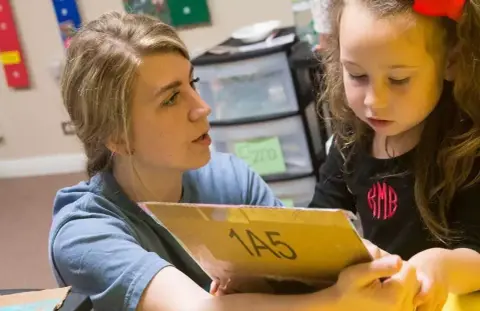What can I do with an Education Major
An education major can lead to a variety of career paths in the field of education, including tea...
#EducationThe natural trajectory of the path to leadership in education is traditional. Most teachers transition to a campus curriculum position and then to an assistant principal. From assistant principal, many naturally move up to become a principal. When I was a graduate student, the courses aligned with this traditional path, and I believed that was the path I would follow as well.
At the time, I held a dyslexia teaching position and was being groomed at my campus to become an assistant principal. Toward the end of graduate school, I decided to continue to doctoral school. There was no doubt in my mind that I would proceed with my education at UMHB. One awesome caveat about UMHB is that the principal certification is included in the graduate degree, and the doctoral degree encompasses the superintendent certification. So, while in both graduate school and doctoral school, I was also working on certification. UMHB was all I knew and was a big part of my life. At that time, UMHB had a doctoral schedule requiring doctoral students to take one Friday off per month for classes. Direct supervisors had to sign a document stating that they knew and approved the employee to have the time off. This requirement was not an issue for me. I had more than enough days accumulated to take time off. This was the perfect time in my life to begin doctoral school. When I explained the requirements to the instructional leader on the campus, they were not supportive because of the schedule. In short, it was evident that I would not be an assistant principal since I would need to be out one Friday per month. I was devastated.
I contacted one of my UMHB professors on my Master of Education graduation day. He stated that if I was told no, I was asking the wrong person. This advice made me realize many things. I had to rethink and refocus my future. I had to ask myself where my true interests lie. I had to determine what footprint I wanted to leave in the legacy of education. After much prayer and soul searching, I realized that I wanted my focus in education to support students with dyslexia. After graduation, God showed me a new path when my district opened a new position, District Assessor. This position would allow me to assess students for dyslexia full-time. It would let me be a part of the legacy that I want to leave. I applied and got the job. This position allowed me to get district-level experience as well. I soon realized that I loved supporting campuses and being at the district level. I began looking for other positions within the district level for upward mobility. I noticed that most of the positions required campus administration experience. Once again, by the grace of God, my district opened another new position. This position was Campus Facilitator. This position allowed me to facilitate 504 and ARD (admission, review and dismissal) meetings for students, including those with dyslexia. Even though it was hard to leave the district position, God told me I would return to a district position, and I believed it. The new position was perfect because it gave me campus leadership experience. I needed that experience to move up.
After two years in the campus position, I knew I needed to return to a district position. I completed my doctoral degree. After job searching in my district, I found nothing that truly interested me. I was asked to apply for a few positions that fell through. As loyal as I was to my district, I thought back to the advice from my professor at UMHB and decided to look outside my district, and found one in a neighboring district that piqued my interest. This position would allow me to return to assessment. It was challenging. I had some experience but would have to learn a lot quickly. This job is my current position, Coordinator of Assessment and Data Management. I didn't realize it then, but being told "no" for an assistant principal position was the best thing that ever happened to me. Being told no made me just uncomfortable enough to do something about it. Being told no was the catalyst for my success. Being told no has heightened my faith in God.
Written by:
Coordinator of Assessment and Data Management Temple ISD Dr. Sheila Ransburg is a triple graduate from the University of Mary Hardin-Baylor in Belton, Texas. She has an undergraduate degree in Social Work. Her Master's and Doctoral degrees both focus on the field of Education Administration. She had been in the education field for 23 years. Outside of teaching elementary school children for 18 years, Sheila has also held administrative positions and district-level positions. Currently, she serves as a Coordinator of Assessment and Data Management. Sheila's current role includes collaboration with the dyslexia department at the district level. Her interest lies in the area of dyslexia. She has taught students with dyslexia as well as tested students for dyslexia. She has played an integral part in determining if students qualify for dyslexia services. At one point in her career, she was a campus advocate for students with disabilities, including dyslexia. This position included facilitating ARDs and 504s for students with dyslexia. Through several years of research, she has determined that students with dyslexia have inspired, influenced, and impressed the world. Her dissertation is titled: "It's My Superpower": The Perspectives of Higher Education Students with Dyslexia on Academic Self-Efficacy.
categories


An education major can lead to a variety of career paths in the field of education, including tea...
#Education
Becoming a teacher can be a rewarding and fulfilling career choice. Here are five reasons why you...
#Education
There are many reasons why you should consider pursuing a master's degree in education. Here are ...
#Education